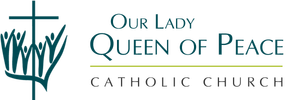Our “aunts” howled with laughter at our consternation. (We had a “house rule” that no one was allowed to “punch holes’ in the bottom of chocolates to find out what kind of filling was inside and you always had to eat whatever piece you took.) As we hovered over the huge box of chocolates trying to decide which piece we would risk trying...my little brother Kevin, who was only about five years old, gleefully said...“it’s like hunting for treasure...you don’t know what you’ll get until you bite into it...and then you’ll get surprised!”
Jesus’ parables are a bit like eating from a box of chocolates without a legend...you never really know what you’re going to get and by the time you discover what it is, it’s too late to refuse it.
Jesus’ parables draw comparisons between what we know and what we don’t know...conventional understanding up against gospel insight. First we say...oh yeah...I know this... and then a sharp corner is turned, and we swallow hard, and we see that the story has a “surprise filling”...not quite what we were expecting.
In today’s parable the Pharisee is supposed to be the righteous one and the tax collector is supposed to be the bad guy...but things are not always as we think they are supposed to be. The message is: we need to be careful about judging others. The fact is that we don’t know what is in someone else’s heart...only God knows. In the Gospels Jesus gives us a different set of rules for judging things to be acceptable or unacceptable...it is a different set of lenses through which we are called to view the world. These Gospel lenses “see” the poor, the immigrant and the marginalized as the beloved of God rather than “a drain on the system” or “foreigners” whom we should fear and send “back home”!
Looking at the world through “Gospel lenses” reveals a whole new way of seeing “the other” and seeing the world around us. What do “Gospel lenses” let me see about our current social and political debate on issues of systemic racism, immigration, refugees, and on issues of gender and misogyny and economic inequality, poverty and ecology. In what light do “Gospel lenses” let me see my sister and brother, Muslims and people of other faiths and political beliefs?
What challenges are presented to me by looking at the burning issues of the world around me, through “Gospel lenses”? And how deeply does that “Gospel view” impact my response to those issues?
Blessings,
Fr Tim

 RSS Feed
RSS Feed
